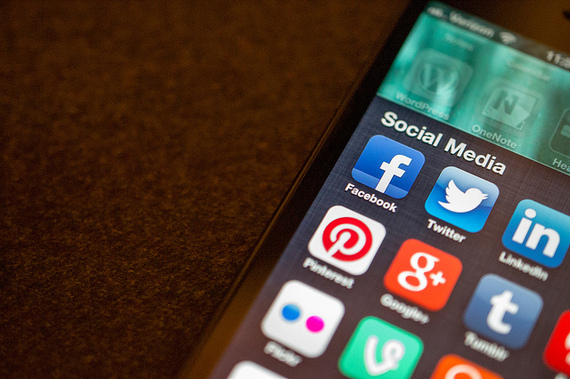Photo by Flickr user Jason Howie
This past June, over 1.71 billion active users logged onto Facebook. Who knows who has been looking at your profile and posts. It could have been your roommate's sister or that weird kid from the fourth grade. But what if it was your potential next boss?
According to Career Builder, there is an increasing number of companies that have dismissed job candidates due to finding questionable posts on their social media accounts.
It's not only job recruiters checking your social media accounts. College admissions offices are, too. Kaplan Test Prep estimates that 40% of admissions officers are checking out prospective students' Facebook and Twitter accounts.
Alan Katzman, founder Social Assurity, has seen the best and worst of social media accounts. Before he started the social media education company, he worked for a company that performed social media background checks on new hires. While some candidates were impressive, others were even more so...but in the wrong way.
"The content was mostly sophomoric, unthinking and often embarrassing," he said. "These published activities not only reflected poorly on these individuals but we concluded they would also reflect poorly on our business brand."
Social media can be tricky for some. While it is something that is deeply personal, it does create a public and professional representation of oneself. Many think that they are safe by just setting their accounts to private, but there is much more than that.
"The focus on social media privacy is a ruse as nothing on social media is ever truly private," said Katzman. "We teach our clients to never rely on privacy settings or platform promises of disappearance or anonymity for protection. The only way to absolutely keep something private is by never posting it in the first place."
Like that's going to happen. However, you can still enjoy social media while not turn off future employers or college admissions offices in the process. Here are a few things to keep in mind:
No Social Media Presence Is A Red Flag
Be honest. The first thing you do is Google someone after you meet them. If you don't find anything on them online, you might avoid them. According to Katzman, professional and college recruiters might think the same way. Everyone takes their online privacy seriously, but being off the grid can be a red flag.
"Not only is it important to be found when being vetted, but recruiters are also using the search capabilities of Google, Facebook, Twitter and LinkedIn to proactively identify, assess and recruit talent," he said. "The ultimate goal is to be found. Colleges and employers could rightly conclude that the lack of a discoverable presence means the applicant has something to hide."
Use Your Social Media To Highlight Positives
That said, it is important to make sure that your Facebook and Twitter accounts give the right impression of who you are. Hiring decisions often come down to how well a candidate will fit in with a company's culture.
"Social media now provides employers with a fast, easy and efficient way to assess a candidate's character, maturity, genuineness, credibility and overall "likeability" before incurring the costs of an interview and background screening," Katzman said.
So, the pictures from your weekend of hard partying might not necessarily show off how responsible you are. But you can overcome that.
"Worry less about that red cup that everyone talks about; instead, focus on highlighting real community service and volunteer activities," he said. "These activities reflect upon good character and demonstrate the sought after skills of engagement, teamwork, commitment, dedication and leadership."
LinkedIn Isn't Just For Jobseekers
When most people think of LinkedIn, they think of it as a networking tool for professionals. But is it important for teens?
"Absolutely," said Katzman. "LinkedIn is the most underutilized free resource available to college bound students." College applicants can use their LinkedIn page as a digital portfolio, showcasing their projects, activities and volunteering. They can even upload some of their better papers and use LinkedIn's blogging platform to show off their writing ability.
If You Don't Have Anything Nice To Say...
We all have that friend or family member who says the worst stuff on social media. In person, they are delightful. But when you put them behind a keyboard, they suddenly think they are a controversial shock jock. Even though they think they're safe giving their "hot take" through the privacy of Facebook, they're wrong.
"The distinction between personal information versus professional credential no longer has significance in the world of social media. Each one of us has the opportunity to keep our personal thoughts, beliefs and experiences private and off the public record by simply choosing not to post to social media," he said.
"By voluntarily placing it in the public domain via social media, we are sharing that information with the world and it becomes part of our virtual resume."
It's Not All Bad
Social media isn't all bad. It does have perks; we use it to maintain friendships globally and keep up with Beyoncé at the same time. But that is just the tip of the iceberg.
"The real reward comes when people begin to understand that they can in fact utilize social media--which most love and use daily--in a way that will benefit them in a professional capacity," Katzman concluded.
Social media allows you to have access and engage with influencers and like-minded communities of people. For job seekers it is access to a network of contacts and opportunities. Just remember--use responsibly.
